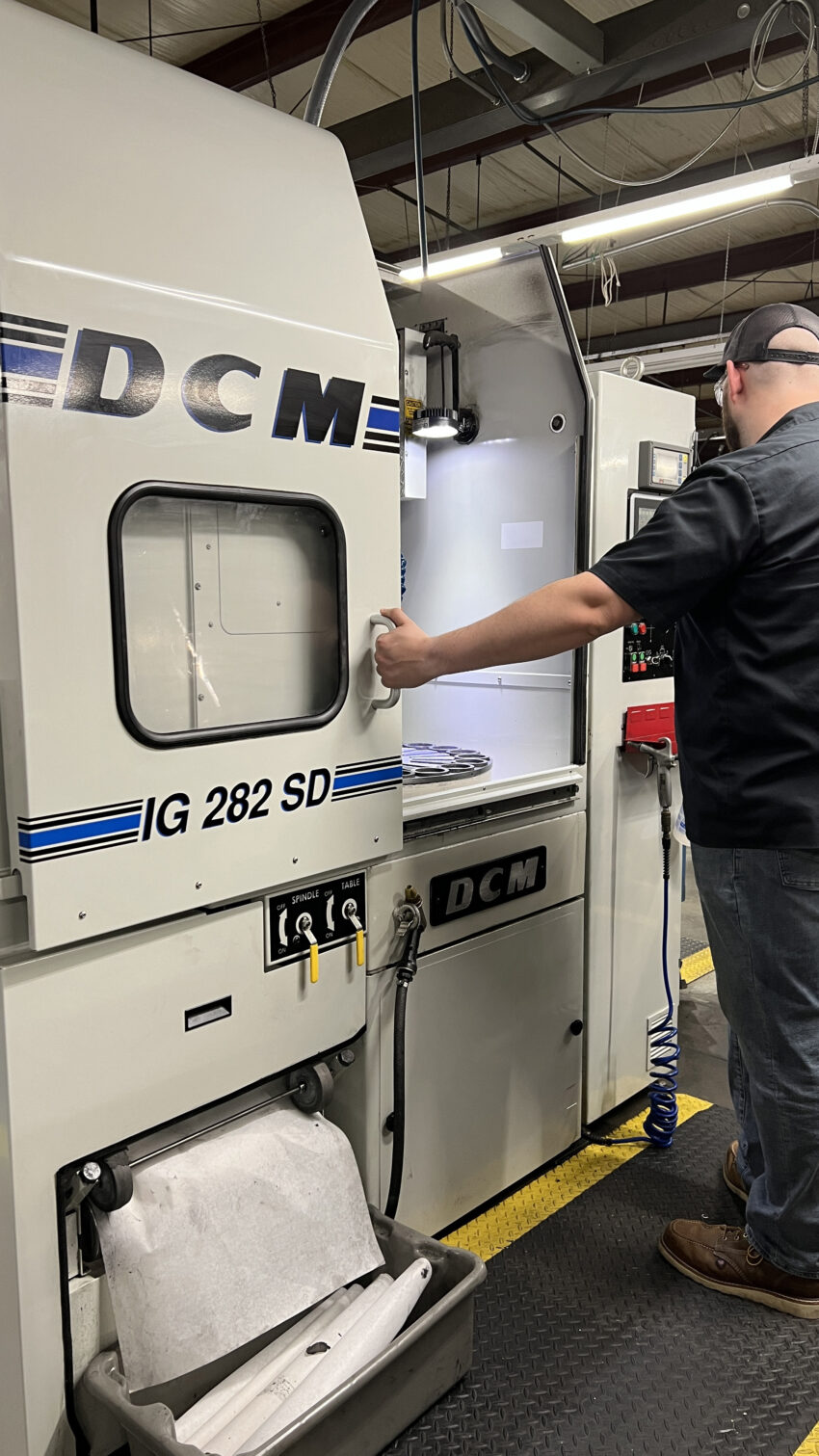Magnetic seals are engineered to perform in high speed, high vibration, high altitude conditions and are excellent replacements for seals that are subjected to high torque, runout, and axial movement.
Each of the components used – the magnet, seal case, and graphite ring – requires precise grinding to specific dimensions, parallelism, and surface finish.
Advanced rotary surface grinders help to provide the precise flatness, parallelism, and finish needed for these industrial parts, which are subjected to high pressure and rotation.
For the magnet, MAGSEAL, LLC, a supplier of specialty magnetic seals for critical systems, starts with a rough casting and grinds all the sides and surfaces. Secondary lapping steps are required to achieve the necessary surface finish.
In the past, the OEM utilized conventional reciprocating grinders on the magnets. Although reciprocating table grinders can be precise, the material removal rate is slow since the workpiece travels back and forth under the grinding wheel, so many grind passes are required.
However, as production requirements increased, the OEM decided to replace a slow, aging reciprocating rotary surface grinder that often needed to be repaired with advanced rotary surface grinders from Winona, MN-based DCM Tech.
“We were able to achieve the precision and surface finish that we were looking for with the conventional method, but it took significantly longer to grind the same number of parts,” says Jared Desrosiers, Manufacturing Process and Technology Manager, MAGSEAL. “With the [DCM] rotary surface grinder, we knew we could achieve significant time and efficiency gains.”
Today, rotary surface grinders are designed with much more advanced sensors and controls that automatically maintain very tight tolerances, removing material down to within one ten-thousandth of an inch of the final thickness. Digital technology allows for an interface with easy-to-use touchscreen controls.
To expedite the grinding and finishing process for the magnet line, the OEM recently upgraded from a conventional rotary surface grinder to a more automated, IG 282 SD grinder from DCM Tech with a 24” variable speed table and 20HP variable speed spindle.
“We have found that nothing achieves the necessary flatness, height, and parallelism as fast as the DCM Tech rotary surface grinders. The required parallelism is particularly important to prevent vibration at high speeds of rotation,” says Desrosiers.
For more information, call (800) 533-5339, email info@dcm-tech.com, visit www.dcm-tech.com.

